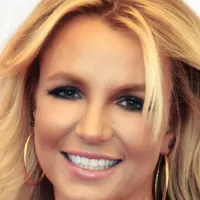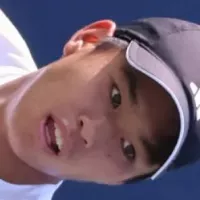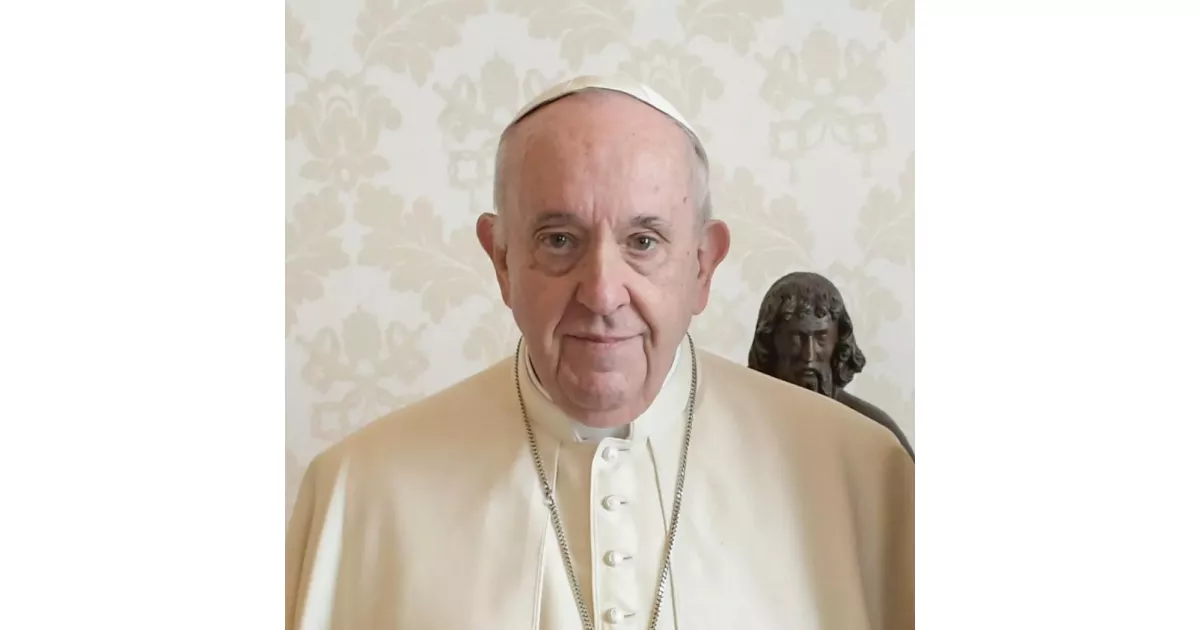Life is full of challenges, and Pope Francis faced many. Discover key struggles and how they were overcome.
Pope Francis served as the head of the Catholic Church and sovereign of the Vatican City State from March 13, 2013, until his death in 2025. He held the distinction of being the first Jesuit pope, the first pope from Latin America, and the first pope born or raised outside of Europe since the 8th century. His papacy marked a significant shift in the Church's leadership and geographical origins.
1976: Allegations Regarding Kidnapping of Jesuit Priests
In 1976, during Argentina's Dirty War, Bergoglio faced allegations regarding the Argentine Navy's kidnapping of two Jesuit priests, Orlando Yorio and Franz Jalics. Bergoglio was reported to have failed to protect them. They were found alive months later outside Buenos Aires, drugged and partially unclothed.
1976: Context of the Detention of Yorio and Jalics
In early 1976, according to historian Uki Goñi, the military junta still had a good image among society, and the scale of the political repression was not yet widely known. Bergoglio would have had little reason to suspect that the detention of Yorio and Jalics could end in their deaths.
1999: Government Transition and Church Criticism
In 1999, Fernando de la Rúa replaced Carlos Menem as president of Argentina. As an archbishop, Bergoglio celebrated the annual Mass on the First National Government holiday. During Argentina's economic depression, the Catholic Church, including Bergoglio, criticized the government's austerity measures. De la Rúa asked the church to facilitate dialogue, but a meeting with Bergoglio was reportedly canceled.
1999: Yorio's Accusation Against Bergoglio
In a 1999 interview, Orlando Yorio accused Bergoglio of effectively handing him and Franz Jalics over to death squads by declining to tell the authorities that he endorsed their work and stated that Bergoglio did nothing to free them.
December 2001: Intervention During Riots
During the police repression of the riots in December 2001, Bergoglio contacted the Ministry of the Interior and requested that the police distinguish between rioters and vandals from peaceful protesters.
2004: Call for Political Dialogue
In 2004, during the First National Government holiday Mass at the cathedral, Bergoglio, in the presence of President Néstor Kirchner, requested more political dialogue, the rejection of intolerance, and criticism of exhibitionism and strident announcements.
2005: Criminal Complaint Filed Against Bergoglio
In 2005, Myriam Bregman, a human rights lawyer, filed a criminal complaint against Bergoglio, as superior in the Society of Jesus of Argentina, accusing him of actual involvement in the 1976 kidnapping of Jesuit priests Orlando Yorio and Franz Jalics. The complaint was eventually dismissed.
2006: Support for Joaquín Piña's Election
In 2006, Bergoglio helped fellow Jesuit Joaquín Piña win the elections in the Misiones Province, preventing an amendment to the local constitution that would allow indefinite re-elections. This was a setback for President Kirchner's plans to implement similar amendments nationally.
2008: Call for National Reconciliation
In 2008, Bergoglio called for national reconciliation during disturbances in Argentina's agricultural regions, which the government interpreted as a support for anti-government demonstrators, further straining his relationship with the government.
2010: Commissioned Study of Father Julio César Grassi
In 2010, then-Cardinal Bergoglio commissioned a study which concluded that Father Julio César Grassi, a priest convicted of child sexual abuse, was innocent, that his victims were lying, and that the case against him never should have gone to trial.
2010: Political Rivalry with Kirchner
Until his death in 2010, President Néstor Kirchner considered Bergoglio as a political rival due to Bergoglio's opposition to Kirchner's political projects and attempts to amend the constitution.
2012: Defrocking of Mauro Inzoli
In 2012, Francis's predecessor Benedict defrocked Mauro Inzoli, an Italian priest accused of child sexual abuse.
2012: Vatican's Opinion on the sisters' group
In 2012, the Vatican formed the opinion that the US Leadership Conference of Women Religious had some feminist influences, focused too much on ending social and economic injustice and not enough on stopping abortion, and permitted speakers who questioned church doctrine.
2013: Reaffirmation of Reform Program for US Leadership Conference of Women Religious
In 2013, Francis initially reaffirmed the Congregation for the Doctrine of the Faith's programme to reform the US Leadership Conference of Women Religious, which had been initiated under Pope Benedict XVI.
January 2014: Changes to Vatican Bank Oversight
In January 2014, Francis replaced four of the five cardinal overseers of the Vatican Bank, continuing efforts to reform the bank and address allegations of corruption and money laundering. Ernst von Freyberg was put in charge.
2014: Reversal of Laicization for Mauro Inzoli
In 2014, Pope Francis reversed the decision to laicize Mauro Inzoli, ordering that he remain a priest but be removed from public ministry and ordered to retire to "a life of prayer and humble discretion."
2015: Criticism for Supporting Bishop Juan Barros
In 2015, Pope Francis was criticized for supporting Chilean bishop Juan Barros who was accused of covering up Catholic Church sexual abuse cases in Chile, including crimes committed against minors.
2016: Creation of Study Commission on the Women's Diaconate
In 2016 Pope Francis created a Study Commission on the Women's Diaconate to research the role of female deacons in early Christianity.
2016: Conviction of Mauro Inzoli
In 2016, Mauro Inzoli was convicted of sexually abusing children in Italian civil court and sentenced to prison.
March 2017: Upholding of Conviction Against Julio César Grassi
In March 2017, the Supreme Court of Argentina upheld the conviction and prison sentence against Father Julio César Grassi, a priest convicted of child sexual abuse.
September 2017: Admission of Mishandling the Inzoli Case
In unscripted remarks to the Pontifical Commission for the Protection of Minors in September 2017, Pope Francis admitted that he mishandled the Mauro Inzoli case, acknowledging he made an error in judgment.
July 2018: McCarrick resigned from the College of Cardinals
In July 2018, Theodore McCarrick resigned from the College of Cardinals following renewed allegations of sexual misconduct.
October 2018: Review of Church's "institutional knowledge and decision-making" related to McCarrick
In October 2018, Pope Francis ordered a review of the Catholic Church's "institutional knowledge and decision-making" pertaining to Theodore McCarrick.
2018: Acknowledgement of Errors and Resignations of Chilean Bishops
In 2018, Pope Francis acknowledged he had made "grave errors" in judgment about Bishop Juan Barros, apologized to the victims and launched a Vatican investigation that resulted in the resignation of three Chilean bishops: Barros, Gonzalo Duarte, and Cristián Caro.
February 2019: Acknowledgment of clergy abuse and convening summit
In February 2019, Pope Francis acknowledged that priests and bishops were sexually abusing religious sisters, and he addressed the clergy sex abuse scandal by convening a summit on clergy sexual abuse in February 2019.
February 2019: Summit on sexual abuse convened
In February 2019, Pope Francis convened a summit on sexual abuse organized by Hans Zollner; some survivors expressed disappointment with the lack of concrete rules.
May 2019: Promulgation of Vos estis lux mundi
On 9 May 2019, as a follow-up to the summit on clergy sexual abuse, Pope Francis promulgated the motu proprio Vos estis lux mundi, which specified responsibilities, including reporting directly to the Holy See.
December 2019: Abolishment of "pontifical secrecy" privilege in sexual abuse cases
In December 2019, Pope Francis abolished the "pontifical secrecy" privilege in sexual abuse cases, clarifying that bishops do not need authorization from the Vatican to turn over canonical trials materials to civil law enforcement authorities.
2019: Commission Unable to Reach Consensus on Deaconesses
In 2019, Pope Francis said that the Study Commission on the Women's Diaconate was unable to come to a consensus.
March 2020: Response to COVID-19 Pandemic
During the COVID-19 pandemic in March 2020, Pope Francis canceled his regular general audiences at St. Peter's Square, offered prayers, and pleaded "not to leave the ... people alone" after the closure of churches in the Diocese of Rome.
March 2020: Establishment of Vatican COVID-19 Commission and Urbi et Orbi Benediction
In March 2020, Pope Francis asked the Dicastery for Promoting Integral Human Development (DPIHD) to create a Vatican COVID-19 Commission, and on 27 March gave an extraordinary benediction Urbi et Orbi.
April 2020: Creation of New Commission on Women's Diaconate
In April 2020, Pope Francis empaneled a new commission, led by Cardinal Giuseppe Petrocchi with a new membership, to study the issue of deaconesses.
November 2020: Release of Vatican report on McCarrick's career
In November 2020, Pope Francis authorized the release of the Vatican's report, which detailed a two-year investigation into Theodore McCarrick's career, largely faulting Pope John Paul II.
2020: Rupnik Preaches Lenten Meditation
In 2020, Marko Rupnik preached a Lenten meditation for priests working in the Roman Curia, including Pope Francis, before accusations of abuse became widely known.
June 2021: Publication of Pascite gregem Dei
On 1 June 2021, Pope Francis published the apostolic constitution Pascite gregem Dei, reforming Vatican penal law by strengthening the penalties for sexual abuse and financial crimes.
November 2021: Gratitude to Journalists for Uncovering Child Sexual Abuse
In November 2021, Pope Francis thanked journalists for their work in uncovering child sexual abuse scandals in the church and giving voice to abuse victims.
2021: Health problems prompt resignation rumors, which Francis dismisses.
In 2021, Pope Francis's health problems led to rumors about his potential resignation, which he dismissed.
January 2022: Private Meeting with Marko Rupnik
In January 2022, Pope Francis met privately with Marko Rupnik, who was later accused of psychological, spiritual, and sexual abuse.
July 2022: Apostolic Journey to Canada and Apology for Indigenous Abuses
In July 2022, Pope Francis made an apostolic journey to Canada, where he expressed sorrow, indignation, and shame over the church's abuse of Canadian Indigenous children in residential schools and apologized for the church's role.
September 2022: Francis calls for negotiated settlement in Ukraine war
In September 2022, Pope Francis stated that Ukraine had the right to defend itself in the war with Russia, but he also urged for a negotiated settlement, advocating for dialogue with all parties involved, even the aggressor. He suggested that arms transfers to Ukraine could be morally acceptable under certain conditions.
October 2022: Francis appeals to Putin and Zelenskyy regarding the war in Ukraine
In October 2022, Pope Francis directly appealed to Russian President Putin to halt the "spiral of violence and death" in Ukraine. He also asked Ukrainian President Zelenskyy to consider "serious peace proposals", while acknowledging the suffering of the Ukrainian people and recognizing Ukraine had suffered an aggression.
November 2022: Cardinal Jean-Pierre Ricard Admits to Sexual Abuse
In November 2022, French Cardinal Jean-Pierre Ricard admitted to sexually abusing a 14-year-old girl, prompting an investigation. Pope Francis condemned sexual abuse but did not deprive Ricard of his status.
April 2023: Francis announces secret "mission" for peace
In April 2023, during a trip to Budapest, Pope Francis announced he was working on a secret "mission" aimed at bringing peace and facilitating the return of Ukrainian children abducted by Russia. However, these efforts to position the Vatican as a mediator ultimately failed.
2023: Apparent Rejection of Women Deacons
In late 2023, Pope Francis appeared to reject the idea of women deacons, saying that "holy orders is reserved for men."
2023: Milei's Criticism of Francis
Prior to his election in 2023, Javier Milei was critical of Francis, describing him with disparaging terms, sparking controversy among Catholics.
2024: Apparent Rejection of Women Deacons
In late 2024, Pope Francis appeared to reject the idea of women deacons, saying that "holy orders is reserved for men."
January 2025: Establishment of Independent Tribunal
In January 2025, Cardinal Víctor Manuel Fernández confirmed that the Dicastery for the Doctrine of the Faith (DDF) was working to establish an independent tribunal to move forward with judicial proceedings regarding the Marko Rupnik case.
February 2025: Francis enters Gemelli Hospital due to Bronchitis
In February 2025, Pope Francis was admitted to Gemelli Hospital in Rome due to bronchitis. He stayed for over a month due to a polymicrobial infection, bilateral pneumonia, and required mechanical ventilation. He was discharged on March 23 after blessing a crowd.
Mentioned in this timeline

Donald John Trump is an American politician media personality and...

Instagram is a photo and video-sharing social networking service owned...

Vladimir Vladimirovich Putin is a Russian politician and former intelligence...
Ukraine is a large country in Eastern Europe second in...
Venezuela officially the Bolivarian Republic of Venezuela is a country...
Sudan officially the Republic of the Sudan is a country...
Trending

7 months ago Courtney Love claims to be the first with a Super Fuzz Big Muff.

3 months ago Britney Spears Deletes Instagram Amidst Concern: A Deep Dive

Kurt Cobain was the frontman of Nirvana a highly influential grunge band His angsty lyrics and anti-establishment attitude resonated with...

4 months ago Learner Tien faces Nuno Borges in ATP Paris Masters 2025 first round.

9 months ago Scherzer's Rehab Advances Amid Trade Rumors and Blue Jays' Pitching Concerns.
10 months ago Kaitlan Collins's Giggles During Pentagon Leaks Report: An Uncontained Moment on CNN
Popular

Kid Rock born Robert James Ritchie is an American musician...
The Winter Olympic Games a major international multi-sport event held...

XXXTentacion born Jahseh Dwayne Ricardo Onfroy was a controversial yet...

Barack Obama the th U S President - was the...

Melania Trump a Slovenian-American former model has served as First...

Hillary Diane Rodham Clinton is an American politician lawyer and...
